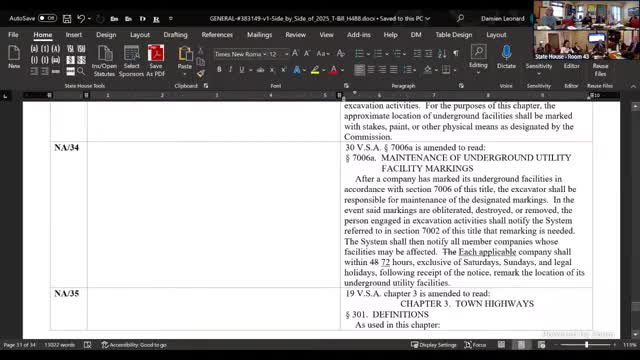Article not found
This article is no longer available. But don't worry—we've gathered other articles that discuss the same topic.
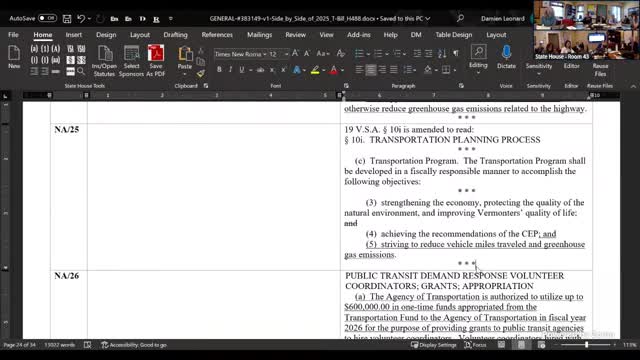
Conference committee examines Medicaid nonemergency transport contract, $600,000 volunteer coordinator proposal and background‑check barriers
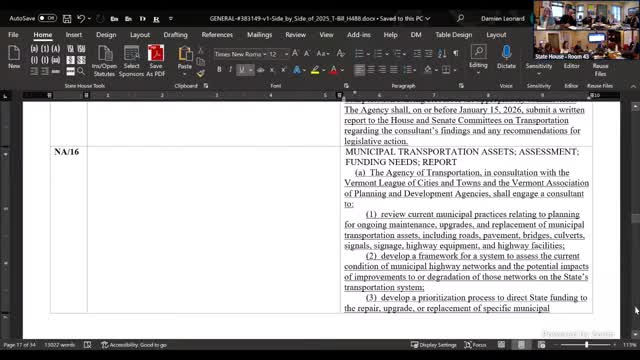
Conference committee backs study to build municipal project prioritization system; AOT would get two years to recommend framework
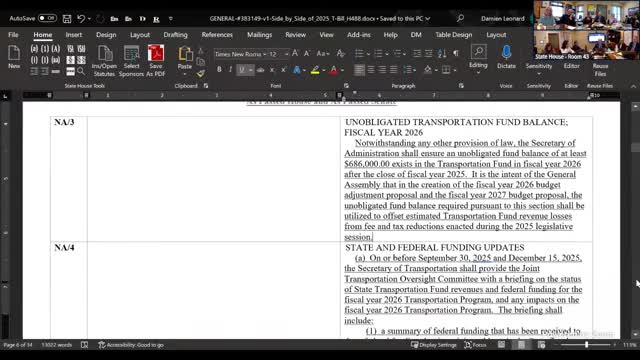
Conferees weigh replacing granular 10-G reports with a project dashboard; agencies and auditors cited
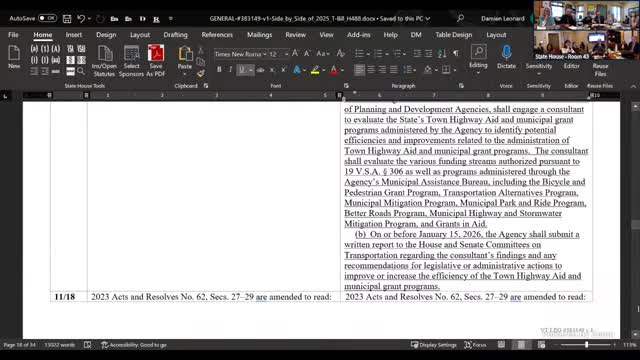
Lawmakers debate timing and design of proposed mileage-based user fee, flag potential constitutional and revenue issues
